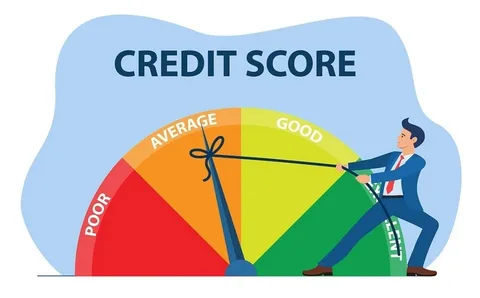
A credit score is an important aspect of financial health that reflects your creditworthiness. It’s a 3 digit number, typically ranging b/w 300 to 900, that indicates how likely you are to repay borrowed money.
Credit scores are determined by analyzing various financial behaviors, including payment history, credit utilization, and the length of credit history. This score plays a pivotal role in many financial transactions, from applying for loans and credit cards to renting a home or even securing a job in certain cases.
Lenders and financial institutions use scores in the likes of Credit or CIBIL to analyse the risk of lending money to an individual. A high credit score increases the possibility of approval of your loan and may result in lower interest rates, while a low score can limit financial options or lead to higher costs.
Many financial institutions, like Muthoot Finance, offer tools to check your free credit score and stay informed about your financial health. Regularly monitoring your score ensures that you’re always prepared to make sound financial decisions.
This article talks about what a credit score entails, why it is essential, and how to maintain or improve it for better financial opportunities.
Finding the best tradelines involves researching providers with consistent reporting history, transparency, and strong customer feedback. The right tradelines can enhance your credit mix, reduce utilization, and boost scores efficiently—helping you achieve financial goals like loan approvals or credit limit increases.
Understanding What is a Credit Score
A credit score represents a numerical summary of your credit history and behavior. In India, four major credit bureaus calculate this score: TransUnion CIBIL, Experian, CRIF High Mark, and Equifax. While the calculation methods vary slightly among these bureaus, the factors considered are generally the same:
- Payment History
Your record of timely or missed payments counts a lot towards your score. Consistency in paying on time raises your score, while late payments make it drop.
- Ratio of Credit Utilization
This ratio measures the amount of credit you have used and compares that amount to the total credit limit assigned to you. Ideally, a lower utilization ratio, less than 30%, is better.
- Length of Credit History
A longer credit history often results in a better score, as it gives more data visibility for lenders to evaluate your creditworthiness.
- Types of Credit Accounts
A mix of credit types, such as credit cards, personal loans, and mortgages, can positively influence your score.
- Credit Inquiries
Too many hard inquiries, which occur when lenders check your credit report, can lower your score.
Why Does a Credit Score Matter?
A credit score holds significant weight in financial transactions and beyond. Here are a few reasons why your credit score matters:
- Loan Approvals: A higher score increases your chances of securing loans and credit cards.
- Lower Interest Rates: Borrowers with strong credit scores are more likely to secure loans at lower interest rates.
- Better Negotiating Power: A strong credit score gives you the upper hand when negotiating loan or credit card terms.
- Employment Opportunities: Some employers check credit scores as part of their hiring process.
- Rental Applications: Landlords may review your credit score to determine your reliability as a tenant.
Benefits of Checking Your Credit Score Regularly
Check your free credit score regularly to experience lots of advantages.
- Keeping Track of Your Finances: Keep changing the amount in your score based on understanding of your finances.
- Identify Fraudulent Activity: Catch mistakes or unauthorized transactions early on.
- Prepare for Your Future Goals: Knowing your score has made arrangements for major purchases like a loan mortgage easy.
Muthoot Finance makes it as simple as possible to check free online credit score, keeping you updated and proactive on your financial wellbeing.
How to Raise Your Credit Score
A credit score can be improved or maintained through consistent good financial conduct. The following are actionable steps to achieve:
- Pay Bills on Time
Late payments significantly impact your credit score. Set reminders or automate payments to avoid missing due dates.
- Maintain a Low Credit Utilization Ratio
Use only a small portion of your credit limit to demonstrate responsible credit usage.
- Limit New Credit Applications
Avoid frequent applications for new credit, as this can result in multiple hard inquiries.
- Keep Old Accounts Open
Longer credit histories contribute positively to your score, so avoid closing old accounts.
- Monitor Your Credit Report
Keep a period check on your credit report and dispute any errors that may be affecting your score.
The Impact of Credit Score on Loan Approval
There have been cases observed when an individual applied for personal loan with a credit score of 780- The lender approves his loan with a 10% interest rate due to his excellent score.
While with almost similar scenarios another individual but with a score of 550 applies for the same loan- The lender either rejects her application or approves it with a 20% interest rate, reflecting her higher risk as a borrower.
This example underscores the tangible benefits of maintaining a high credit score.
Credit Score Range: What Does It Mean?
| Score Range | Category | Implication |
|---|---|---|
| 300-550 | Poor | High risk; difficult to secure loans |
| 551-700 | Fair | Needs improvement; limited financial options |
| 701-750 | Good | Likely to receive favorable loan terms |
| 750+ | Excellent | Low risk; best interest rates and approvals |
Understanding what a credit score is and its importance is crucial to manage and improve your financial health. Your credit score impacts everything from loan approvals to interest rates, making it a vital tool for achieving financial stability. By checking your free credit score regularly, you can identify areas for improvement and take proactive steps to enhance your financial profile.
Muthoot Finance offers a free credit score check to help you stay on top of your financial health. Explore their services to make informed financial decisions and unlock better opportunities.
Write and Win: Participate in Creative writing Contest & International Essay Contest and win fabulous prizes.


